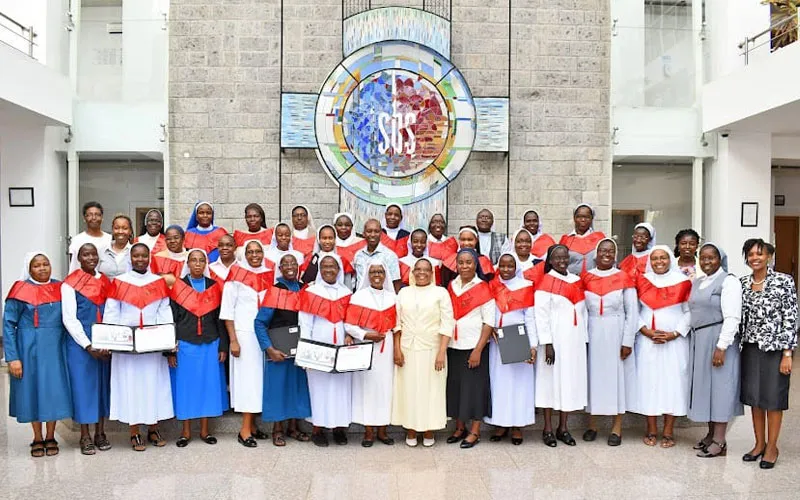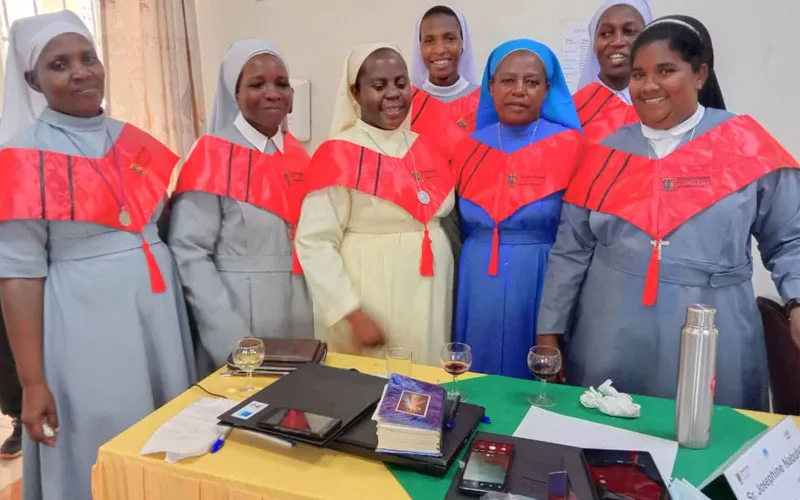“We are building capacity in impact investments, to help Sisters to transform their social projects into entrepreneurial ventures so that they get the capacity to sustain their communities. We want them to do transactions, to access loans and to run their ventures skillfully,” the member of the Oblate Sisters of the Assumption (OA) said.
She added, “We have noticed that social ministries run by our Congregations are lagging behind in terms of development. You find that a project has been around for more than 100 years and in all that time, the people behind it have not seen the need to make it sustainable.”
Topics that were developed by Strathmore University included proposal writing to attract funding, budgeting, baselining to find out the needs before starting business ventures, problem solving, communication, risks and how to overcome them, innovativeness, among others.
The alumna of the Centre for Leadership and Management (CLM) of the Kenya-based Tangaza University College (TUC) noted that for lack of skills and prior knowledge, some Sisters who are in charge of their Congregations’ projects are not running the projects in the right manner.
“Some Sisters who are in charge of business ventures in their communities lack basic skills such as pricing, marketing and needs assessment,” she said, and added, “You also find a Congregation starting a school at a place that already has a school, without providing any form of uniqueness.”
(Story continues below)
Sr. Silvia Faustine, a Passionist Sister in Tanzania’s Catholic Archdiocese of Arusha who also completed the ACWECA training noted that Congregations are not always keen on skilled personnel when assigning Sisters to take charge of their projects.
“In some Congregations where there are few Sisters, you find one Sister acting as the bursar of the school, the matron as well as the one in charge of the school’s chicken business. Most times, such a Sister doesn’t have skills to navigate across all those responsibilities,” Sr. Faustine said in a Wednesday, April 13 interview with ACI Africa.
Her biggest takeaway from the training that was facilitated by Strathmore University is the importance of researching widely before embarking on any project.
“I learnt the importance of carrying out a proper analysis of the problem and identifying the needs of the people before starting the project to meet the needs. But above all, there is the need to align those projects to the charism of the Congregation,” Sr. Faustine said.
She added, “We sometimes struggle a lot because we don’t evaluate our projects. We don’t monitor them because we don’t have the skills and knowledge to do so.”
 Credit: Sr. Celestine Nasiali/ACWECA
Credit: Sr. Celestine Nasiali/ACWECA
After the training, the Passionate Sister says she had a meeting with the Superior of her Congregation who she says appreciated the skills and knowledge she had acquired.
“I walked my Superior through some skills and knowledge I had acquired and she identified some areas that had not been going well in the management of our projects. We all realized that we had erred a lot by not communicating our progress with our stakeholders, among other things,” she said.
Sr. Nasiali said that Sisters who had undergone the ACWECA project at Strathmore university will always receive support in the projects they are running in their Congregations.
“Our doors at ACWECA, and I believe, at Strathmore, will always be open for the Sisters whenever they need mentorship or to consult in any given area of Project management. Those who need help with proposal writing, budgeting or anything at all, will receive the help they need,” the Kenyan-born OA member said.
In her message to Superiors of Congregations, Sr. Nasiali said, “We call on them to encourage their members who are interested in entrepreneurship to come and get the relevant knowledge and skills to scale up their community projects.”
She said that the ACWECA Project Management project should be an eye-opener for Congregations “to think outside the box” and to encourage their members to acquire knowledge in other fields outside the popular health and education areas, provided the areas are aligned to their respective charisms.
Agnes Aineah is a Kenyan journalist with a background in digital and newspaper reporting. She holds a Master of Arts in Digital Journalism from the Aga Khan University, Graduate School of Media and Communications and a Bachelor's Degree in Linguistics, Media and Communications from Kenya's Moi University. Agnes currently serves as a journalist for ACI Africa.




 Credit: Sr. Celestine Nasiali/ACWECA
Credit: Sr. Celestine Nasiali/ACWECA
 Credit: Sr. Celestine Nasiali/ACWECA
Credit: Sr. Celestine Nasiali/ACWECA


